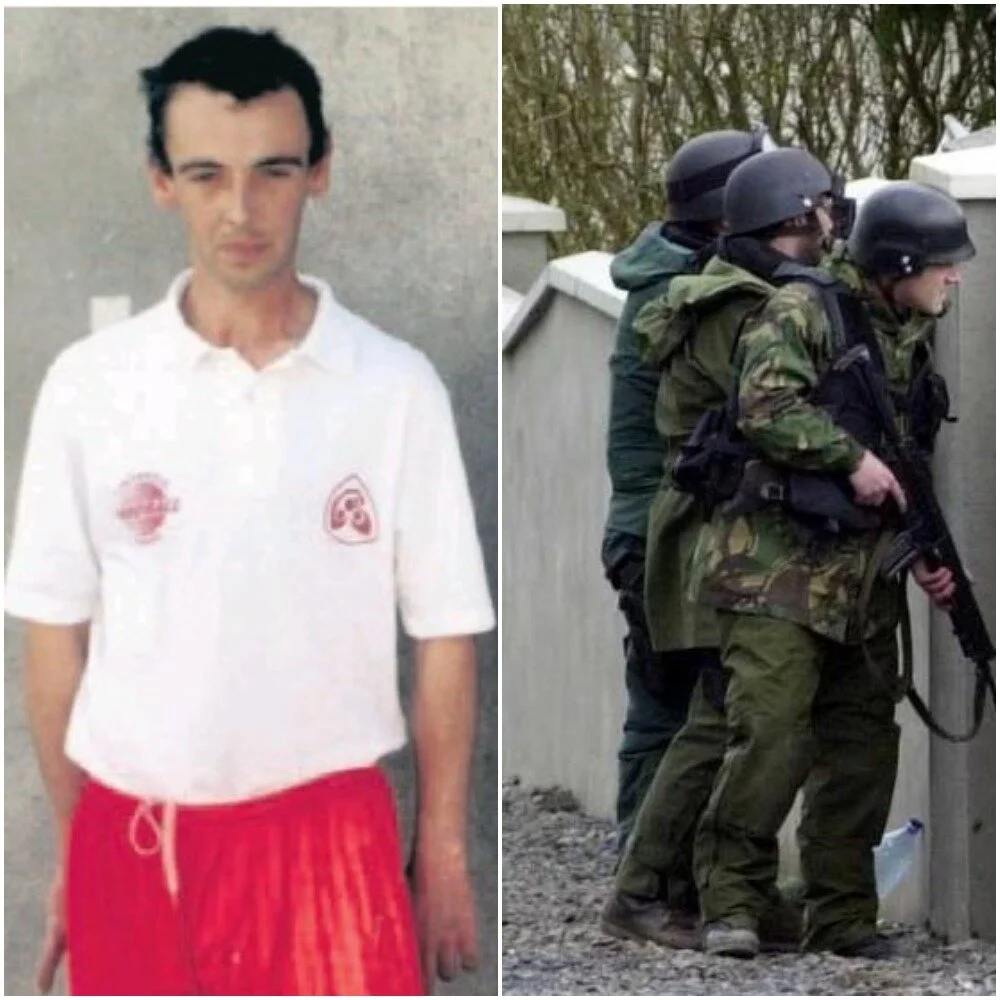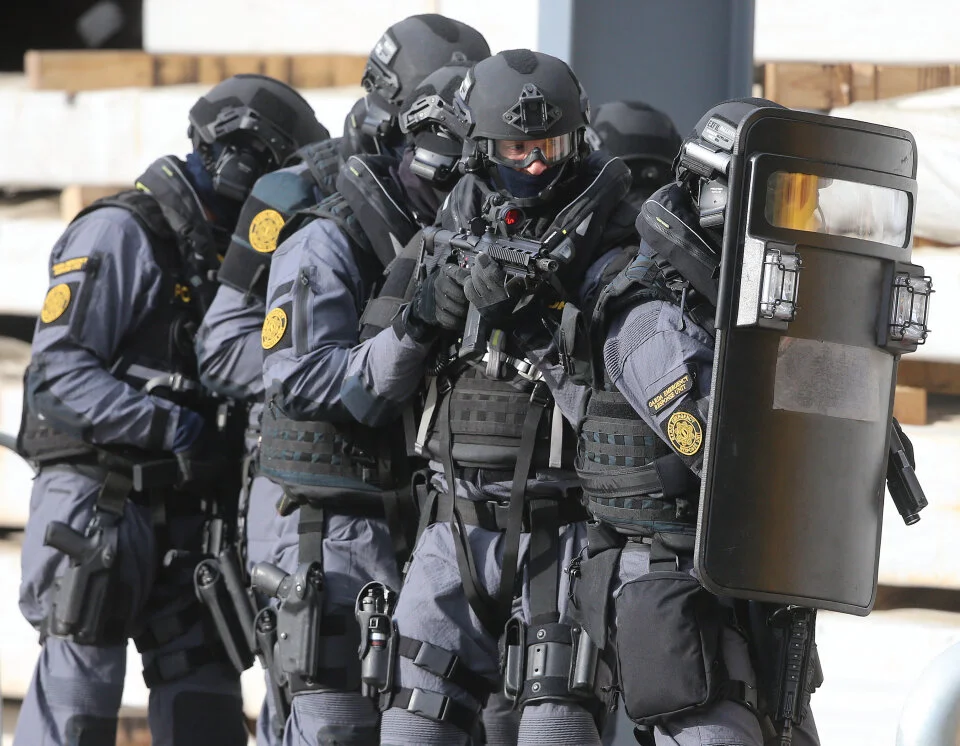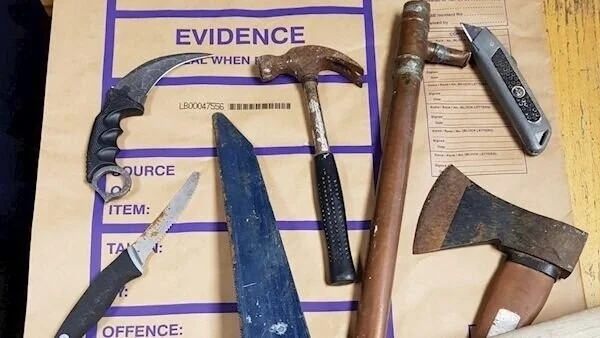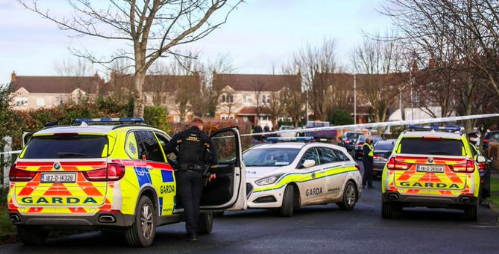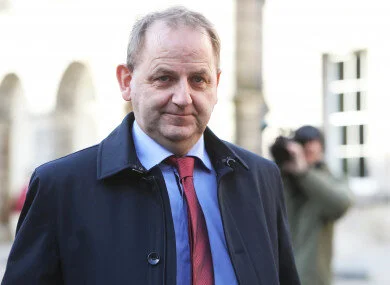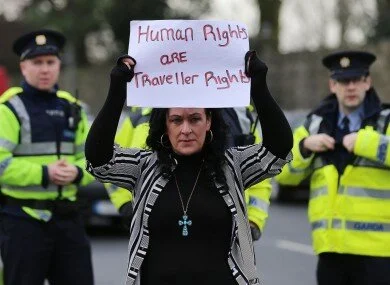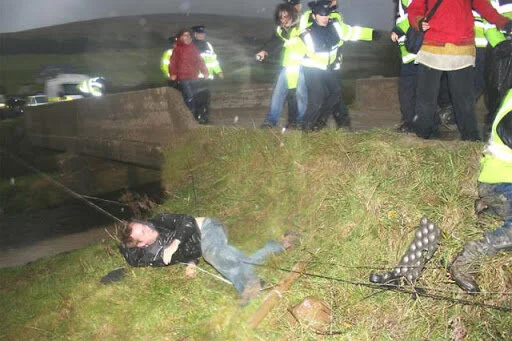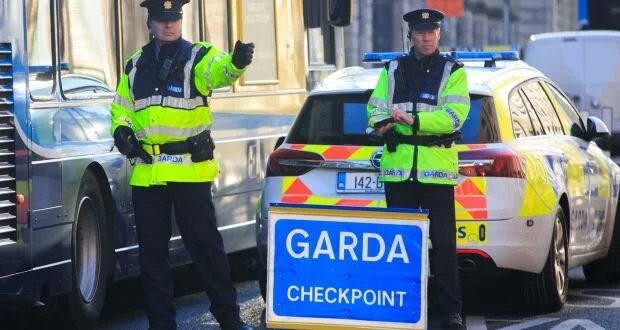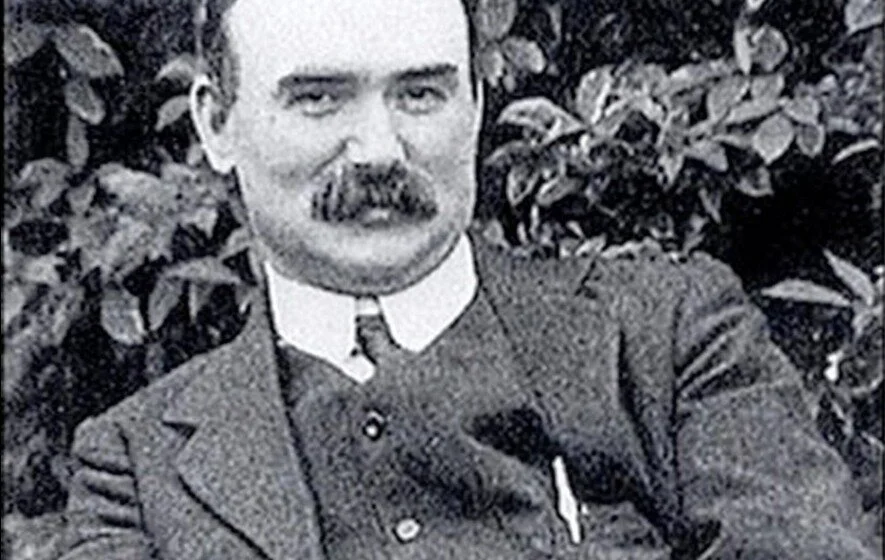The Killing Of George Nkencho Should Be A Concern For All
On Tuesday, December 30th, members of a Garda Armed Support Unit shot a young man dead in the front garden of his home on the Dublin / Meath border. Since then Irish social media has been flooded with unprecedented volumes of content relating to the shooting itself and to George Nkencho, the man that died.
Much of this social media commentary has been based upon hearsay, rumour, speculation, half-truths and deliberate misinformation emanating from the far-Right. Few of the allegations or assertions that have been made have been backed up with any form of verifiable evidence.
Garda Killings Exceptionally Rare
In the 30 years before the Nkencho killing, the Gardaí have shot dead just ten people - all men. In eight of the ten fatal shootings, the dead were either carrying firearms or participating in armed robberies when they were shot dead.
One of the two others who died at the hands of the Gardaí was also armed with a firearm. John Carthy, who suffered from serious mental health problems, was controversially shot dead when he emerged from his family home in Abbeylara after a 25-hour-long siege while carrying a legally-held shotgun.
Just one of the ten people killed by Gardaí over the last three decades was armed with a knife as opposed to a gun. He was also the most recent person to the die at the hands of the Gardaí.
Mark Hennessy was killed by a single shot fired through the window of his jeep in 2018. In the hours before his death Hennessy was known to have kidnapped Jastine Valdez, a 24-year-old student who he had randomly targeted as she took a walk in the Wicklow countryside.
The Garda who fired the fatal shot that killed Hennessy subsequently testified that he believed Hennessy was about to slit the throat of Valdez at the time he opened fire. She had in fact been already murdered by Hennessy.
The fact that fatal shootings by the Gardaí are extremely rare does not mean that such shootings should not be subject to the most rigorous of investigations when they do occur.
John Carthy, who had serious mental health problems, was shot dead by the Emergency Response Unit outside his home in Abbeylara, Co Longford.
Extraordinary Powers Require Extraordinary Oversight
There is no greater power granted to the Gardaí than the legal right to take human life in exceptional circumstances. Such an extraordinary power must be subject to extraordinary oversight.
This legal right must be subject to a full, independent, transparent investigation on every occasion that it is invoked. To do otherwise would effectively allow individual Gardaí to function as judge, jury and executioner.
Whether the slain individual is wealthy or poor, white or black, catholic or protestant, gay or straight, citizen or permanent resident, native-born Irish or a tourist , a convicted criminal or an absolute innocent, is irrelevant.
Every Garda killing, regardless of the circumstances, must be thoroughly investigated to establish beyond all doubt that the killing was fully justified - that the person who was killed posed an imminent serious physical threat to another - that every other option had been exhausted before fatal force was deployed.
And to establish that the Garda decision to open fire on an individual was not influenced in any way by class, gender, sexual orientation, religion, skin colour or other prejudice.
Nobody reading this article would settle for anything less if a member of their own family was killed by the Gardaí. And in doing so they should be supported by all right-thinking people.
Increasing numbers of Gardaí are now routinely carrying firearms and attached to highly militarised units like the Emergency Response Unit and local Armed Support Units.
Profound Policing Failure
As shown above, Mark Hennessy was the only person armed with a knife to be shot dead by the Gardaí in the last three decades. And his killing was in truly exceptional circumstances.
Over the same time period the Gardaí have seized many thousands of knives, hatchets, slash hooks, swords and other potentially lethal weapons. In 2018 alone the Gardaí seized over 2,000 knives from young people.
While the vast majority of these seizures were non-confrontational in nature, many others involved individuals who were agitated, confrontational and physically aggressive; individuals with severe mental health difficulties; individuals under the influence of alcohol or other drugs; individuals who had just committed acts of extreme violence; individuals who had track records of domestic, gang and other violence.
And yet none of these seizures resulted in a single person being shot dead. This is testament to the extreme dangers that Gardaí face on a regular basis and to their vast experience in disarming people without killing them.
It is alleged that George Nkencho struck a shop worker in the face, that he was in possession of a knife, that he threatened people with a knife and that he attempted to stab a Garda. If he was guilty of these serious crimes he should have been arrested, charged, brought to trial, convicted and sentenced to a substantial jail sentence.
The fact that this did not happen is testament to the demonstrable fact that something went profoundly wrong with the policing operation that swung into action to disarm and arrest Nkencho. The transparent public inquiry that must now examine the killing Nkencho must seek to establish what went wrong and why it went wrong.
The Gardaí have seized tens of thousands of knives and other potentially deadly weapons over the last 30 years without killing a single person. The killing of George Nkencho was, by definition, exceptional.
Facts Must First Be Established
A future inquiry into the killing of George Nkencho must replace the rumours, half-truths, partial videos, unverified witness statements and outright lies that are currently circulating on social media with hard, cold facts.
The truth about what happened last Wednesday, from the events leading up to the alleged assault in the Hartstown Euorspar shop through to the firing of six shots in the front garden of Nkencho’s home.
Key questions relating to the Garda operation must also be answered -
questions relating to the use of less-lethal weapons and tactics
questions relating to the overall command and control of the Garda operation
questions relating to Garda training
questions relating to why there was no Gardaí with public order equipment, including shields, deployed to the scene
questions about the role that the highly militarised Armed Support Unit played in escalating the situation.
It may transpire that the Garda responded appropriately to a difficult, rapidly evolving and potentially dangerous situation. Or it may transpire that there were major failings in their response, failings at a localised, tactical level and / or failings at a systematic, organisational and structural level.
Only an independent public inquiry can establish the truth of what led to the killing of George Nkencho and only an independent public inquiry will gain the confidence of the many citizens who have deep pre-existing concerns about the overall operation of the Gardaí and the Garda Ombudsman.
The full facts of what happened on Tuesday, December 30th can only be established by an independent, public inquiry.
GSOC Inquiry Is Not Enough
Following an initial inquiry, the Garda Síochána Ombudsman Commission has now begun a criminal investigation into the killing of George Nkencho. This investigation will take place within the same, limited, flawed framework as all other GSOC inquiries and thus cannot be seen as either truly independent or public.
Despite its nominal independence and not inconsiderable legal powers GSOC has spectacularly failed to hold individual Gardaí or the organisation collectively to account. In the fifteen years of its existence it has repeatedly failed, for whatever reason, to break through the code of omerta that permeates An Garda Síochána.
Of the many thousands of complaints that have been made to GSOC only a tiny percentage are upheld by the Ombudsman. On the relatively rare occasions that GSOC has recommended the criminal prosecution of an individual Garda, the Director of Public Prosecutions often choses not to proceed to court.
In 2018, for example, GSOC ‘closed’ almost 1,900 complaints consisting of almost 4,000 individual allegations. In the same year the Garda Commissioner imposed just 74 ‘internal sanctions’ on members of the force. Of the 17 cases where GSOC recommended criminal prosecution, the DPP dismissed nine cases, stalled on four and proceeded with just four.
When the experiences of Maurice McCabe, John Wilson and other Garda whistleblowers were made public in recent years, the Irish public were rightly horrified by the widespread dysfunction and corruption within An Garda Síochána.
When those same whistleblowers initially brought their complaints through the official complaints channels, including GSOC, the complaints went precisely nowhere. It was only when they went public, with the support of a small number of journalists and politicians, that their complaints were taken seriously.
Maurice McCabe was subject to the most vicious character assassination by senior Garda management after he exposed corruption within the force.
Organisational Bias Within The Garda
Much of the social media commentary relating to the killing of George Nkencho has focused on his skin colour and the possibility that this influenced the Garda operation to disarm and arrest him.
Based on the available information there is no reason to believe that the Garda who fired the fatal shots took a conscious decision to shoot Nkencho because he was black. Nor is there any reason to believe that the entire policing operation was consciously conducted in a particular way because Nkencho came from a Nigerian background. But that isn’t how organisational bias or institutional racism generally works.
Organisational bias occurs when a significant number of people within a given organisation hold generally negative views towards people from a particular class, religion, ethnic group, nationality or other false division. Those negative views will range from non-existent, to mild, to extreme from individual to individual within a given organisation.
In August of last year, it was revealed that every frontline Garda in a survey of 182 Gardaí had negative views of the Traveller community. The same survey, which was conducted between 2012 and 2014, also found that three-quarters of frontline Gardaí also had negative views of the entire Roma community.
In relation to other minorities, significant numbers of frontline Gardaí had negative views towards Pakistani people (21%), Arabs (30%) and Africans (30%).
Based on this and other research it is entirely logical to ask if the Gardaí involved in the shooting of George Nkencho had a pre-existing bias towards black people and toward young black males in West Dublin in particular.
And if so, did that that bias cause them to act in a different manner to how they might have acted in a similar situation with a young white man? Particularly if the young white man was confronted in the front garden of his home in an area like Dalkey or Killiney.
Large numbers of Gardaí hold negative views of minority communities, including native Irish travellers as well as most recent arrivals to Ireland.
Garda Problems Much Wider Than Bias Against Minorities
Recognising that organisational bias towards minorities exists within the Gardaí is not the same thing as claiming that the Gardaí treat all settled white Irish people equally or correctly at all times. Indeed the Gardaí have shown themselves to be willing to use violence and other forms of abuse against the majority population stretching back to the foundation of the state.
In policing public protests for example, the Gardaí have shown themselves to be more than capable of attacking settled white Irish people with great enthusiasm.
The British Embassy in 1981, Reclaim The Streets in 2002, Rossport from 2005 onwards, the student protest in 2010 and during the water tax protests of 2014 / 15 are just some examples of the Gardaí not only using excessive force, but also of some individuals taking delight in doing so.
Strikers, trade unionists, environmentalists, anti-nuclear activists and even those who organised the boycott of South African goods during the apartheid era have all been subject to Garda malpractice ranging from surveillance and petty harassments to far more serious forms of abuse.
Thousands of Irish republicans too, can testify to a wide range of Garda abuses, ranging from sustained harassment and verbal threats to the planting of evidence, perjury and assault. The brutality meted out by the notorious ‘heavy gang’, and other similar units that preceded and followed them, did not occur in a political vacuum, but was in fact an explicit manifestation of the political will of the then government.
Beyond the political arena, An Garda Síochána has failed Irish women for generations, as many victims of rape, domestic violence and other gender-based crimes can testify. The Mayo ‘rape tape’ gave a chilling insight into the misogynistic culture that continues to exist within sections of the force.
Many within Ireland’s gay community have reported similar negative experiences when they have sought help from, or reported crimes to, the Garda, particularly in rural communities where liaison officers and other specialist Gardaí are thin on the ground.
Unsurprisingly for a police force operating in a capitalist state, there is also a deep class bias within An Garda Síochána, a bias that manifests itself in how many Gardaí view and treat people from working class backgrounds and communities. The more marginalised the community, the greater the bias.
Having the ‘wrong’ address, accent or even clothes can be enough to trigger that class bias, resulting in different Garda attitudes and actions than would be the case for someone who is perceived to come from the ‘right’ economic or class background.
In Rossport the Garda deployed violence on a sustained basis over several years to facilitate the gifting of the Corrib Gas Field to Shell.
Corruption Is Endemic Within Garda Culture
Apologists for the Gardaí claim that the majority of problems within the force are either historic or caused by the proverbial few rotten apples. This is demonstrably untrue.
The penalty points scandal revealed that tens of thousands of driving offences, along with their accompanying penalty points and fines, were corruptly quashed by hundreds of individual Gardaí. Most of these offences related to dangerous, potentially fatal, driving behaviour, including speeding, mobile phone use and the breaking of traffic lights.
Only senior Gardaí were authorised to quash these offences, which they did with great gusto for their friends, families and most disturbingly, on behalf of other more junior members of the force. The login details of senior retired Gardaí were also routinely used to remove traffic offences from Garda computer systems.
The breath-test scandal exposed another example of widespread, systematic corruption within the Gardaí. Between 2009 and 2017 Gardaí across the state logged a staggering 1,400,000 fake breath tests. They did so to advance their own careers with little thought for the fundamental damage that they were doing to the entire anti-drink driving campaign.
The scale of the penalty point and breath-test corruption was so widespread that virtually every member of the force was either directly implicated or indirectly implicated by turning a blind eye. Out of the entire force, only a handful of whistle-blowers were wiling to speak out.
These corrupt practices were so endemic they made it virtually impossible for the state or government to bring serious disciplinary or criminal charges against the perpetrators. To do so would have involved bringing charges against much of the senior management of the Gardaí. Like the pillar banks, these senior officers were deemed too big to fail.
Only the most naïve of individuals could believe that Garda corruption is limited to the quashing of traffic offences and fake breath tests - two areas which happen to have undeniable paper trails.
And only a fool could believe that the deep Garda culture of omerta and the blind eye - itself a serious form of corruption - hasn’t been exploited by those who believe, with considerable justification, that they are untouchable and can operate above the law.
The penalty points and breath-test scandals exposed endemic corruption at every level of An Garda Síochána.
Only Class Solidarity Can Deliver Policing And Justice Reform
In the aftermath of the death of George Nkencho the Irish far-right went into overdrive to make his killing about race, falsely claiming that Nkencho had over thirty criminal convictions including convictions for violent crimes, when in fact he had no convictions at all.
In trying to foster false divisions based on skin colour, religion, sexuality and ethnic background, the far-right are trying to draw the Irish working class into a cul-de-sac of hatred and bitterness that will only benefit the class of the bankers, landlords, bosses and their gombeen politician fixers.
The 1916 Proclamation promised to ‘cherish all the children of the nation equally’ - to reject the false religious and cultural divisions that had been ‘carefully fostered by an alien government’. The signatories understood that a ruling class can only rule for as long as the working class allow themselves to be divided along such artificial lines.
Éirígí has been calling for a root and branch reform of policing and justice in the Twenty-Six Counties for many years. Such reform needs to incorporate not only An Garda Síochána, but also GSOC, the Department of Justice as well as the courts and prisons. Only a wholistic approach of this type can deliver the modern, democratic, representative, accountable policing and justice system that the people of Ireland deserve.
Building a police service that is not prejudiced by the false divisions of class, gender, sexual preference, ethnicity and skin colour will benefit everyone in Ireland, including those who serve within that future policing service. Such a future police service would first and foremost, be loyal to the Republic and its citizenry and not the class interests of the wealthy and powerful.
James Connolly and the other leaders of the 1916 Rising understood that the working class needed to reject based upon religion, gender, ethnicity, skin colour or other false divisions.
Killing Of George Nkencho Should Be A Concern For All
The killing of George Nkencho, and the investigations that must follow it, should be of great concern to all Irish people, not just his family, friends and the black community - of great concern because it could have been any one of our brothers or sons that were shot to death.
Like hundreds of thousands of other people in Ireland, Nkencho had significant mental health problems. And like so many others, he was failed by an underfunded and mismanaged public health service that offered him a waiting list instead of treatment.
Nkencho’s family believe that his violent and erratic behaviour on the day of his death was linked to his mental health issues. His sister, Gloria, has stated that she told the Gardaí that her brother suffered with mental health problems just minutes before he was shot.
If it is established that Nkencho’s violent behaviour was linked to a mental health breakdown, it would echo with the experience of tens of thousands of other Irish people who have witnessed violent outbursts from loved ones with mental health or addiction problems.
Many people believe that race did not play a significant, or any, role in the shooting of Nkencho. If this is true it means that it could have been anyone’s son or brother that was shot six times by the Gardaí - something which should be of great concern for all.


